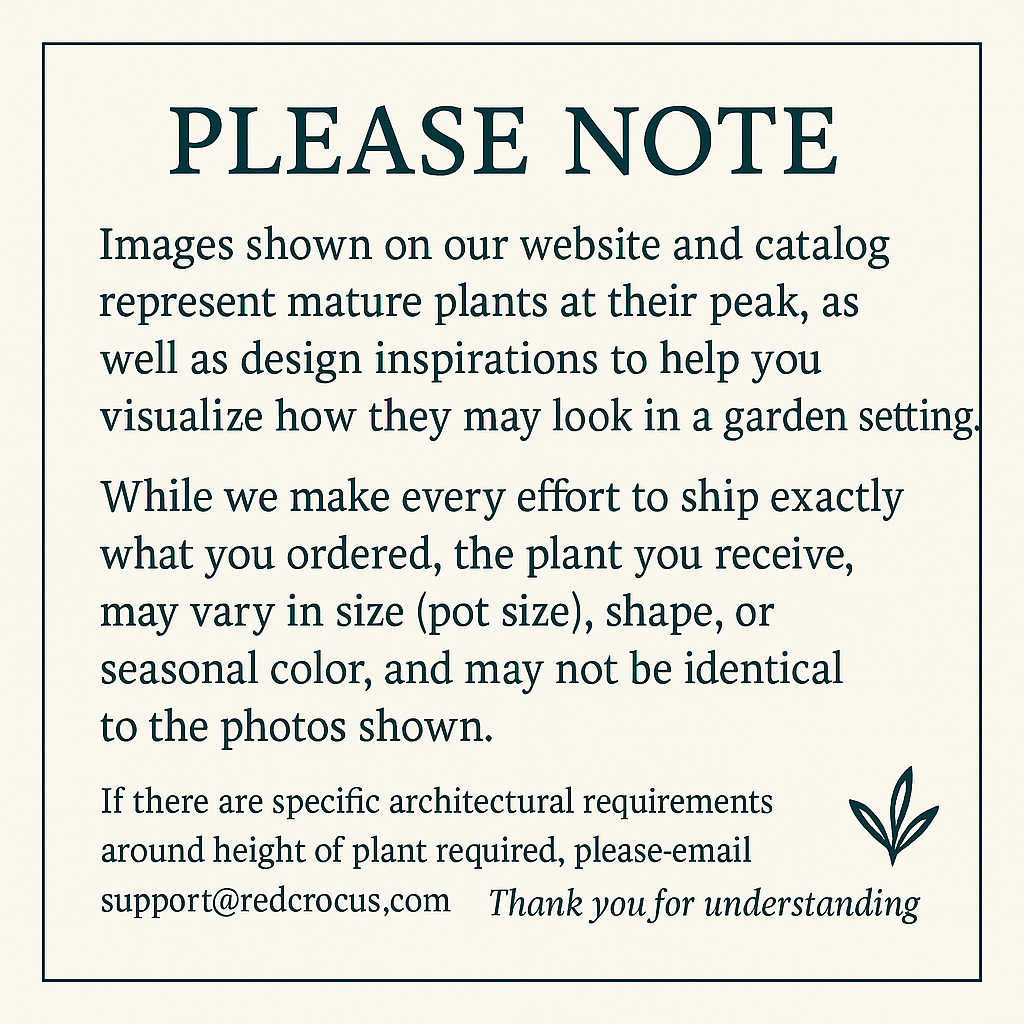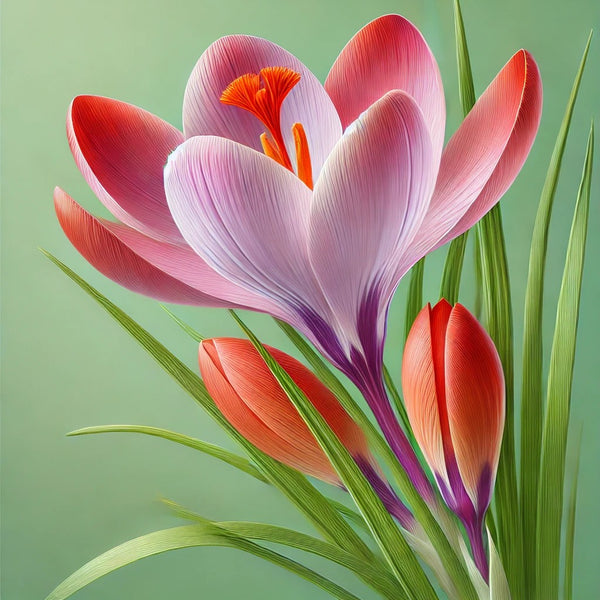1
/
of
20
Shademaster Thornless Honeylocust–Dappled Shade Tree 2-2.5" cal B&B
Shademaster Thornless Honeylocust–Dappled Shade Tree 2-2.5" cal B&B
Regular price
$1,180.00 USD
Regular price
$1,534.00 USD
Sale price
$1,180.00 USD
Unit price
/
per
Shipping calculated at checkout.
SKU:nts0007-redcrocus
Couldn't load pickup availability
Gleditsia triacanthos 'Shademaster'
Description
The 'Shademaster' Thornless Honeylocust is a popular deciduous tree known for its graceful, open canopy and fine-textured foliage. It provides dappled shade, making it an excellent choice for urban environments and large landscapes. Its thornless nature and adaptability to various soil types make it a favorite among landscapers and homeowners alike.
Suggested Uses
Ideal for street planting, parks, and large gardens. It can be used as a shade tree or to create a natural canopy in open spaces. Its adaptability makes it suitable for urban environments where pollution tolerance is essential.
Plant Details
-
 Botanical Name: Gleditsia triacanthos 'Shademaster'
Botanical Name: Gleditsia triacanthos 'Shademaster' -
 Common Name: 'Shademaster' Thornless Honeylocust
Common Name: 'Shademaster' Thornless Honeylocust -
 Size & Growth: 40-50 feet tall, 30-40 feet wide
Size & Growth: 40-50 feet tall, 30-40 feet wide -
 Hardiness Zones: 3-9
Hardiness Zones: 3-9 -
 Foliage Type: Deciduous
Foliage Type: Deciduous -
 Bloom Time: Late spring
Bloom Time: Late spring -
 Growth Rate: Fast
Growth Rate: Fast -
 Light Requirements: Full sun
Light Requirements: Full sun -
 Attracts Pollinators: Yes
Attracts Pollinators: Yes -
 Indoor Friendly: No
Indoor Friendly: No -
 Container Friendly: No
Container Friendly: No -
 Deer Resistant: Yes
Deer Resistant: Yes -
 Pet Warning: Non-toxic
Pet Warning: Non-toxic -
 Fragrant: No
Fragrant: No -
 Cut Flower: No
Cut Flower: No -
 Grows Well With: Oaks, Maples, and other large trees
Grows Well With: Oaks, Maples, and other large trees
Care Tips
-
 Planting Instructions: Plant in well-drained soil, in a location with full sun exposure.
Planting Instructions: Plant in well-drained soil, in a location with full sun exposure. -
 Soil Moisture: Moderate; drought-tolerant once established.
Soil Moisture: Moderate; drought-tolerant once established. -
 Soil Type: Adaptable to a wide range of soil types, including clay, loam, and sandy soils.
Soil Type: Adaptable to a wide range of soil types, including clay, loam, and sandy soils. -
 Humidity: Tolerant of urban pollution and a range of humidity levels.
Humidity: Tolerant of urban pollution and a range of humidity levels. -
 Pruning Instructions: Prune in late winter or early spring to maintain shape and remove dead branches.
Pruning Instructions: Prune in late winter or early spring to maintain shape and remove dead branches. -
 Winter Care: Generally hardy; mulch young trees to protect roots in severe winters.
Winter Care: Generally hardy; mulch young trees to protect roots in severe winters. -
 Planting Depth: Plant at the same depth as in the nursery container.
Planting Depth: Plant at the same depth as in the nursery container. -
 Fertilization: Fertilize in early spring with a balanced fertilizer if needed.
Fertilization: Fertilize in early spring with a balanced fertilizer if needed. -
 Special Care: Monitor for pests such as webworms and treat as necessary.
Special Care: Monitor for pests such as webworms and treat as necessary.
Share








































